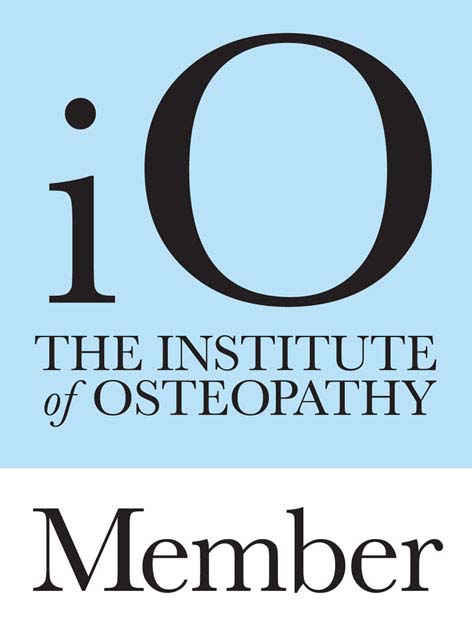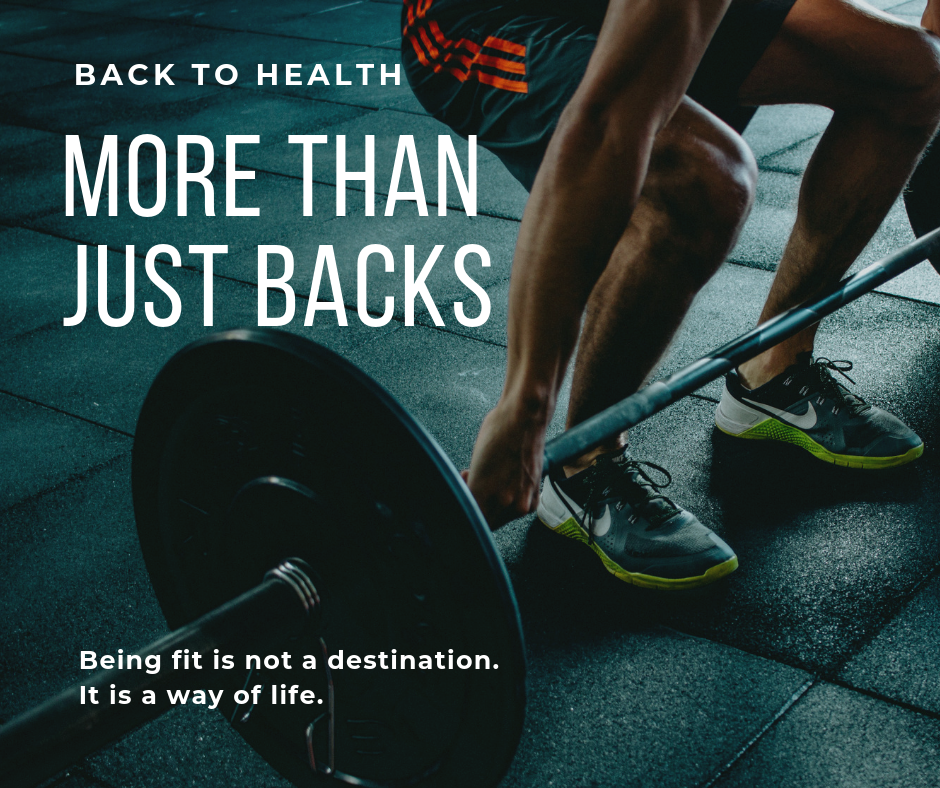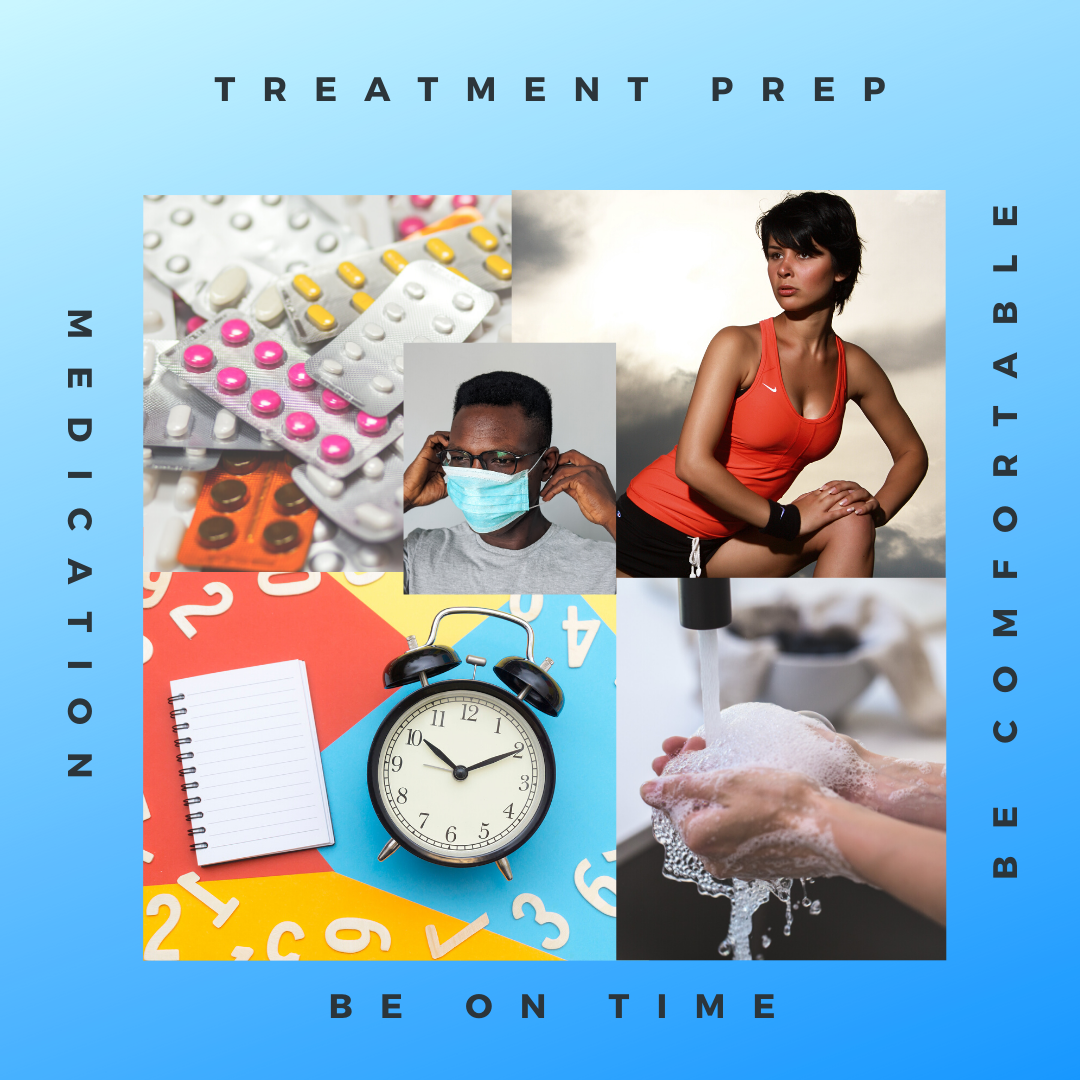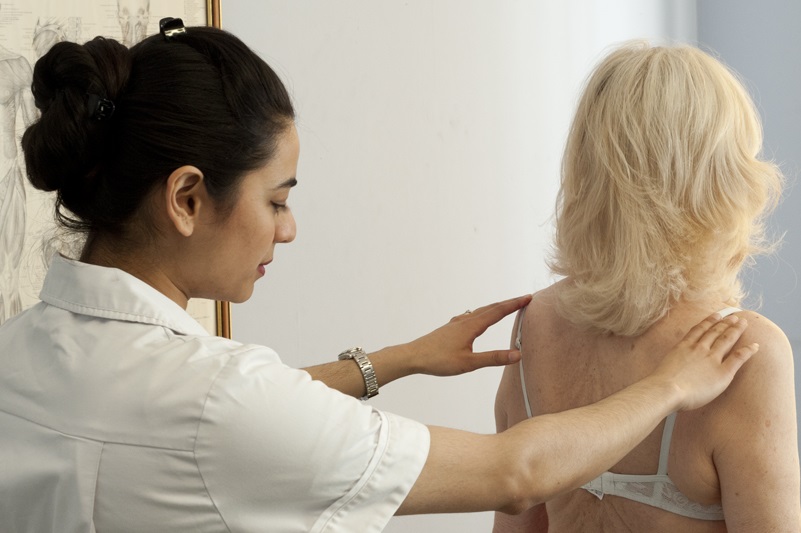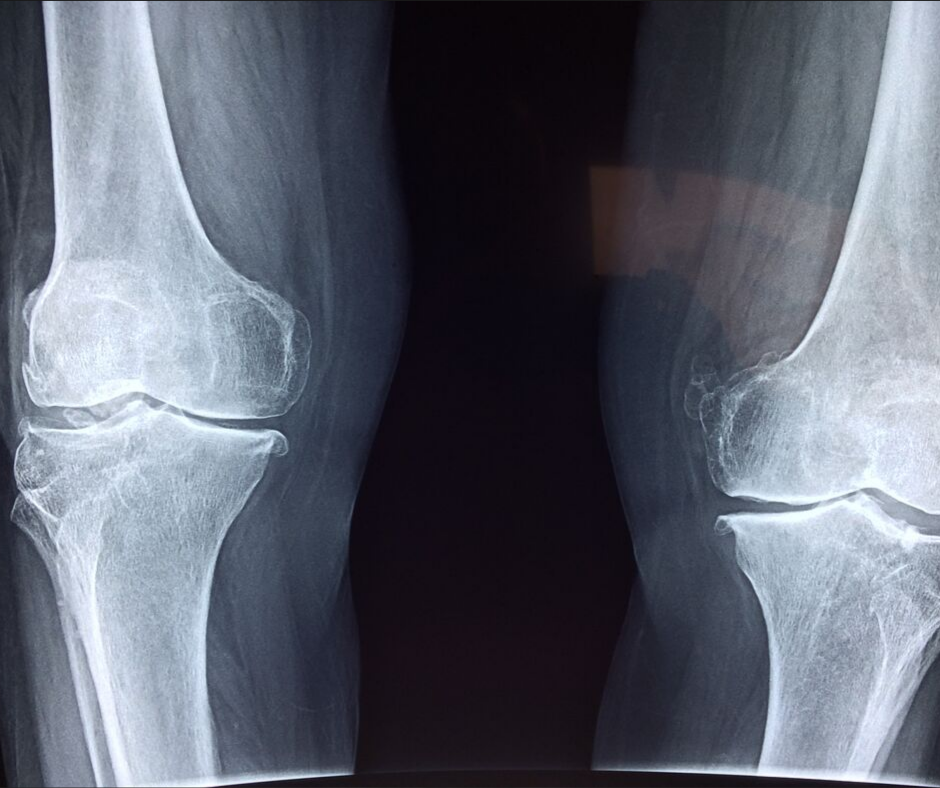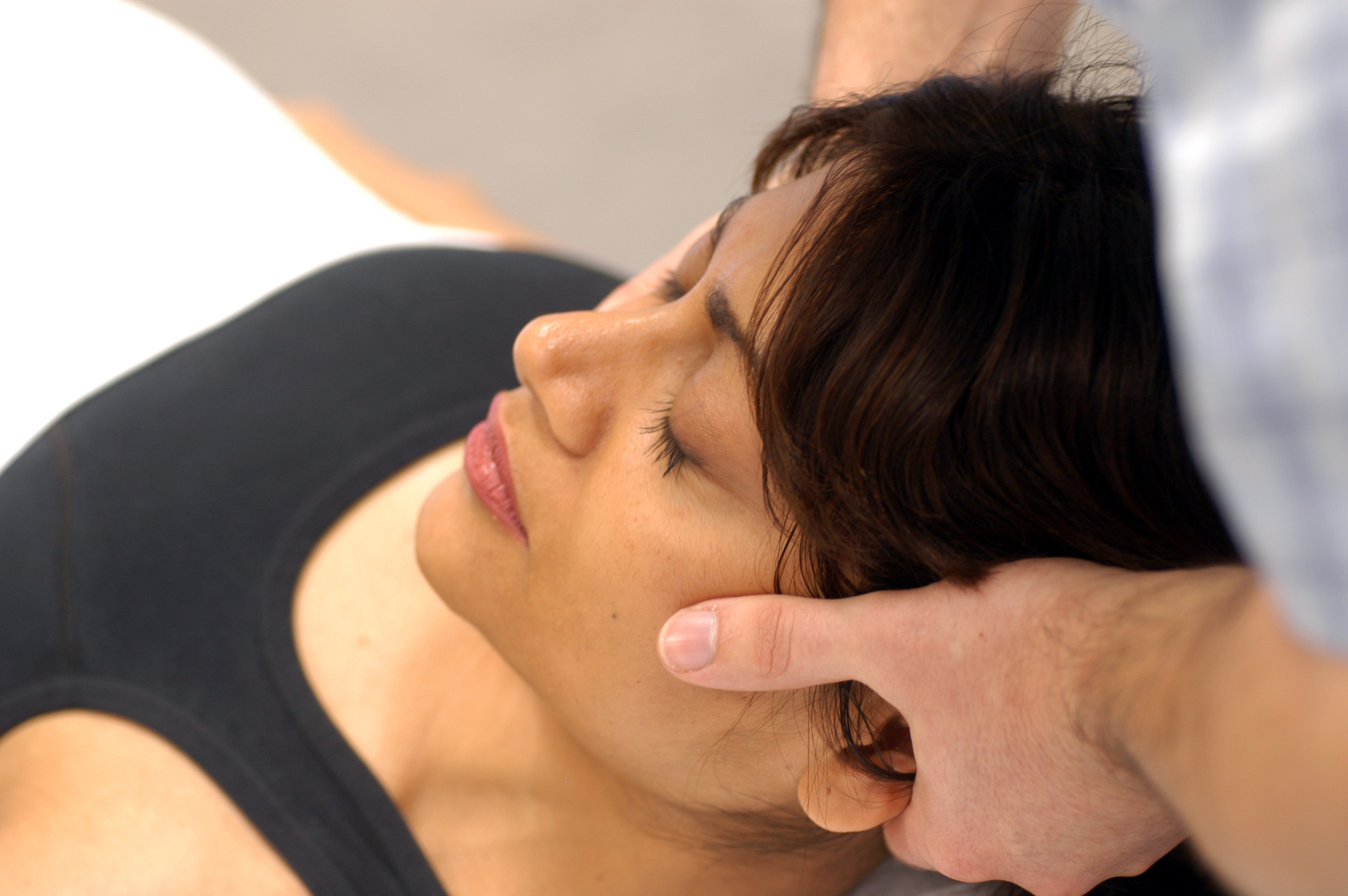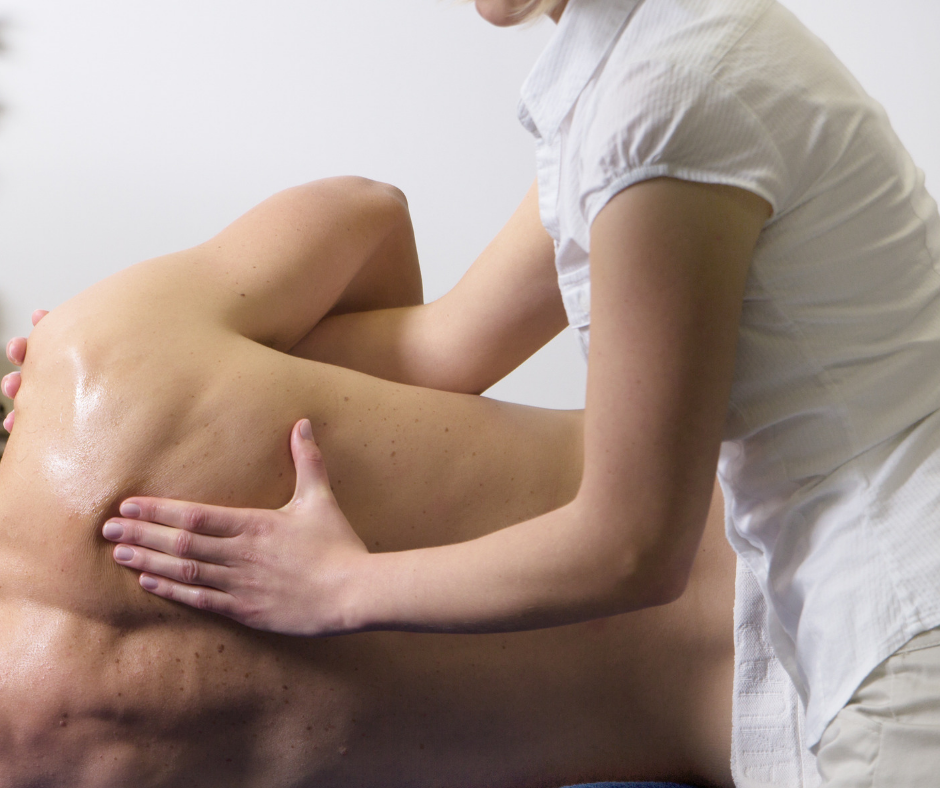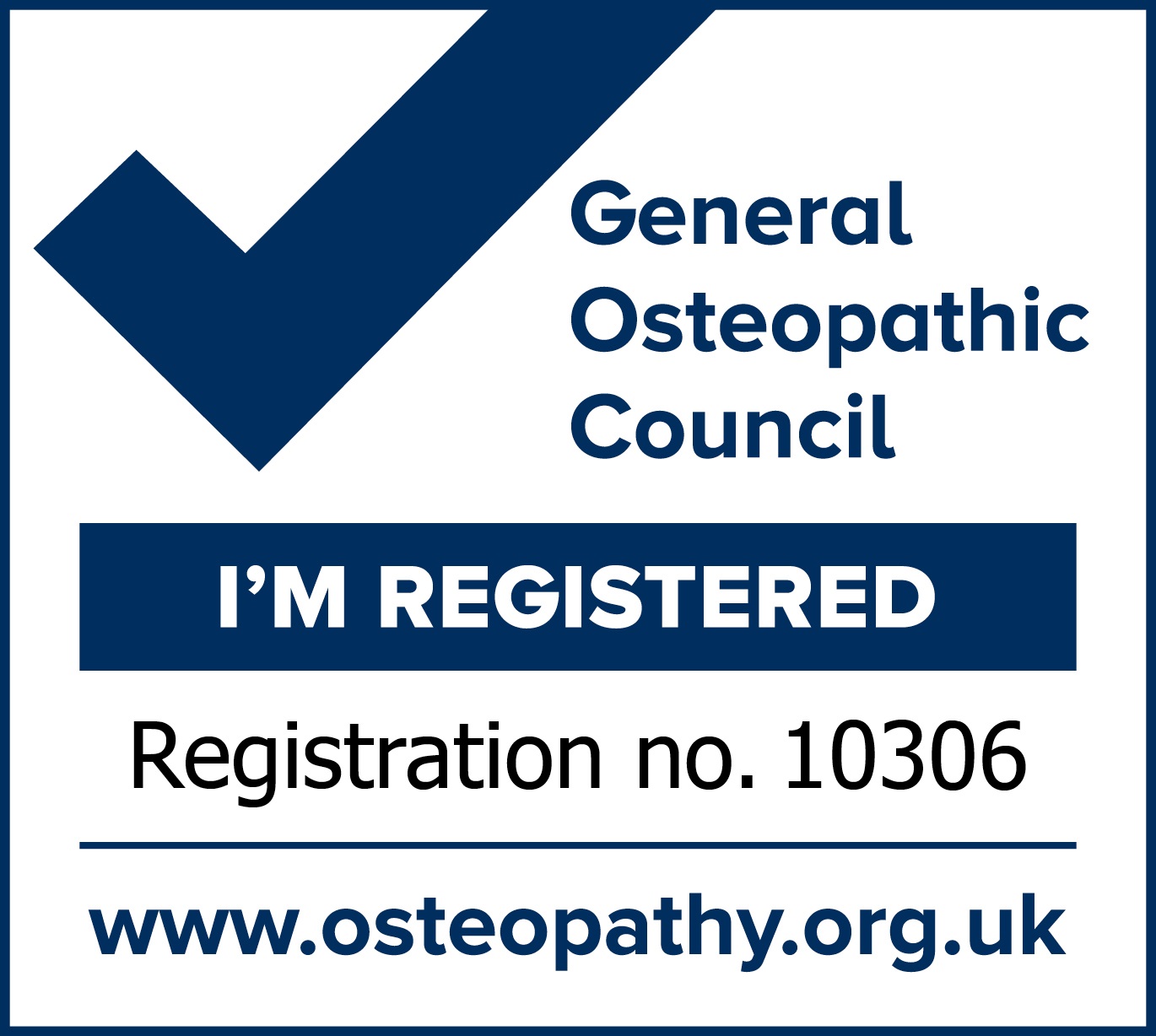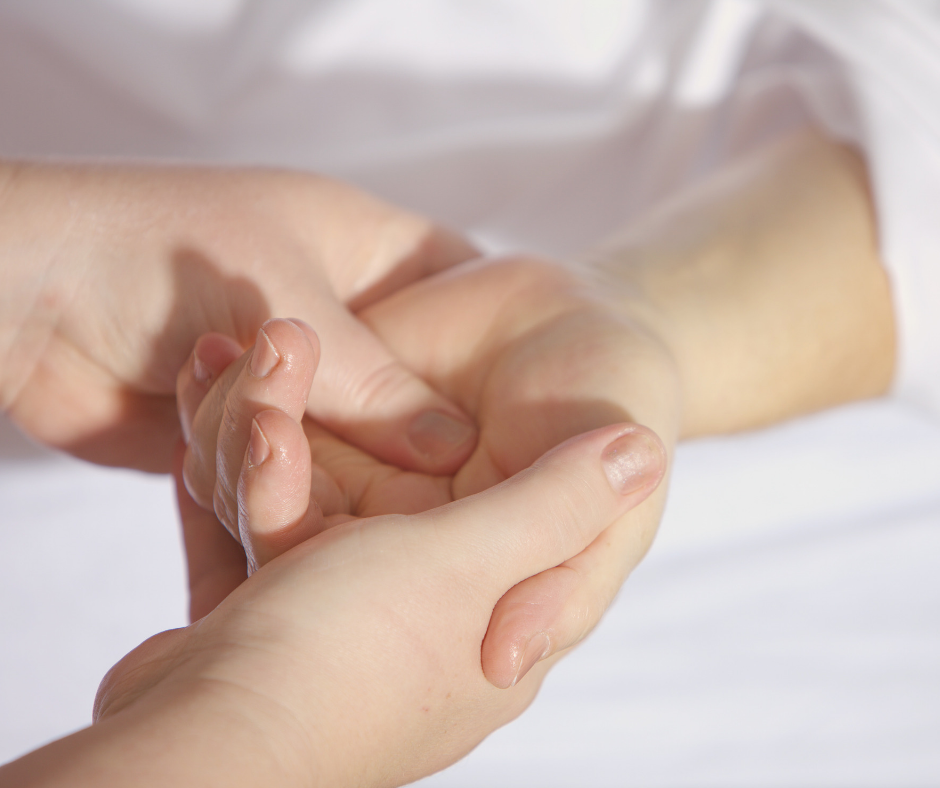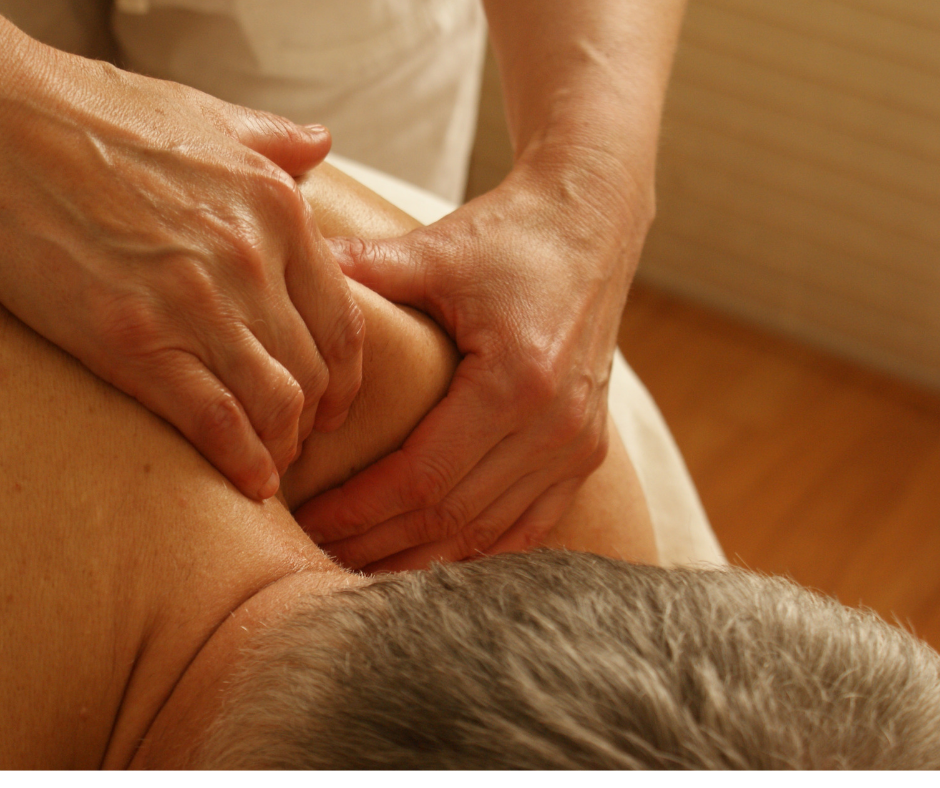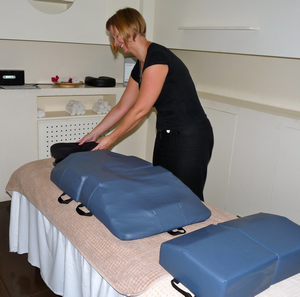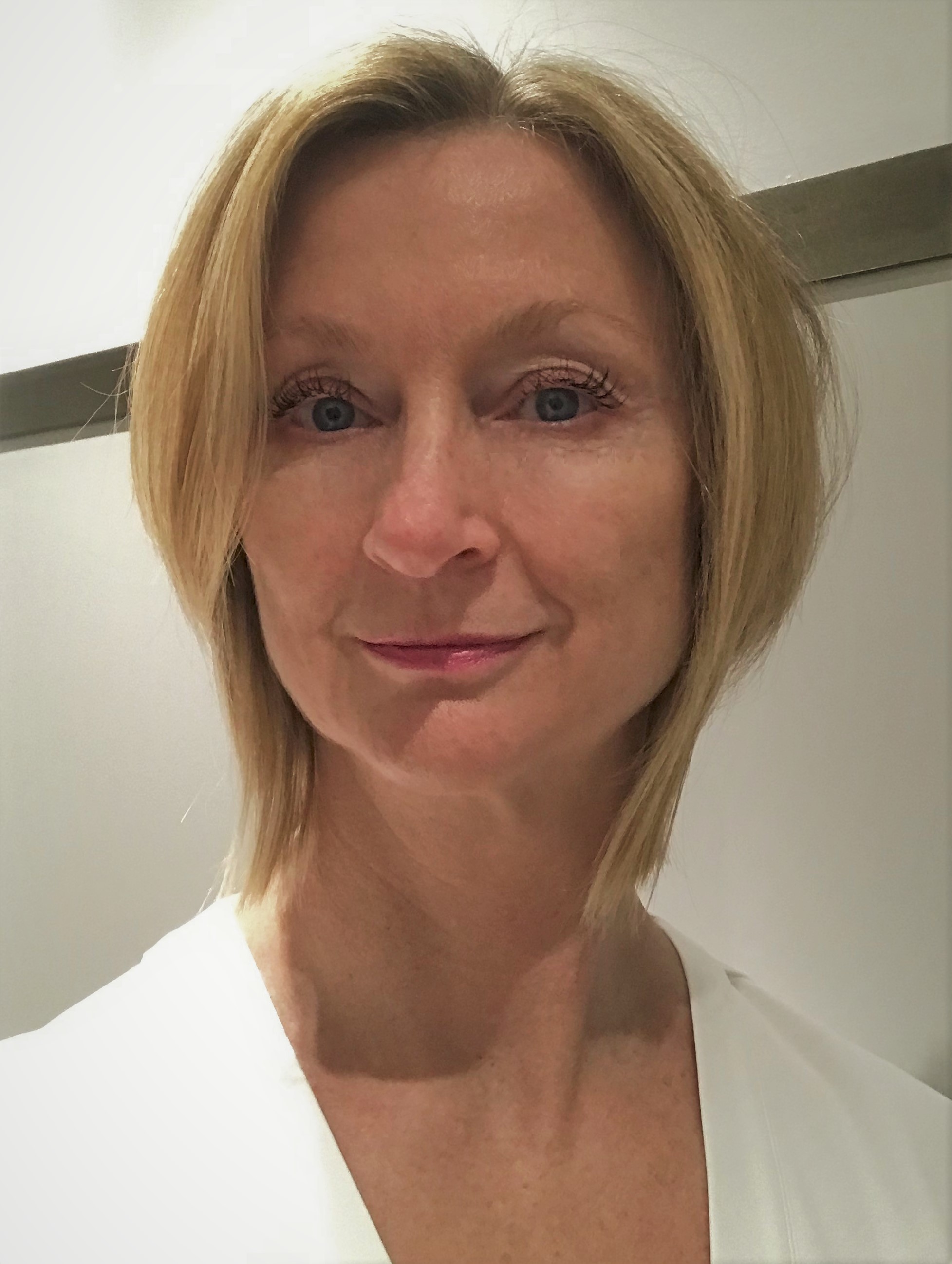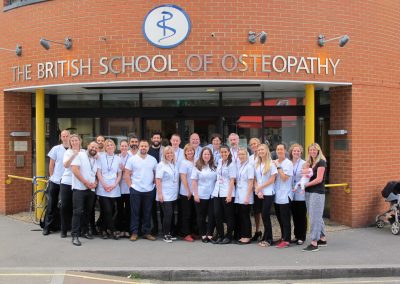Osteopathy; Not just backs
Osteopaths consider your whole body and how it is working and adapting to get you through each day.
Your osteopath will take a full case history, examine you, make a diagnosis, treat and prescribe homework (not always ‘excercise’). Treatment is taylored to you and your body.
In order to understand your body’s ability to heal and adapt we will ask about your general health, medical history and medication taken. Knowing what you do with your body during the day, and what sports and activities you are involved in can help towards a diagnosis and treatment plan. The aim can be relieving your symptoms, increasing your quality of life, physical performanc, rest and sleep.
Treatments centre around the principle that the skeleton, nerves, muscles, ligaments and connective tissues need to work smoothly together to maintain a well funtioning, strong and healthy person. Our bodies have the amazing ability to heal and adapt but too often we don’t listen, understand or have the time to act on its needs. Your osteopath has a medical osteopathic degree and the skills to investigate, understand and support your body to health.
Conscious and unsconcious adaptive postures may relieve an initial ache or pain, but can lead to other problems. A sore heal may be bearable but left untreated can lead to a limp and then pain in the foot, knee or hips. Changes in eyesight may result in an adaptive posture as you subconcously try to focus on a screen or papers, putting strain on your neck, back, shoulders, arms and even hands. Physical trauma can happen at any age and from any activity or sport. Without early intervention and appropriate rehabilitation recovery can be affected as the body adapts to redistribute load and function.
For best results book an appointent as soon as you notice a restriction, injury or pain. Your osteopath can also help you pre and post surgery and when you are in a plaster-cast post fracture. Delaying treatment can lead to a longer and more complicated recovery.
Osteopaths can also help you understand a diagnosis or treatment that has been proposed by another health professionals. Imaging (Xrays, MRIs, DEXA scans…), test results and diognosis can be confusing but we can explain them.
For more information about what osteopathy treats clink this link to the the Institute of Osteopathy.
Preparing for an osteopathic treatment
Timing
Arriving a few minutes early for the first appointment will allow you time to fill in a simple form and give flexibilty in case of transport delays. Follow-up apointments are often much shorter so it is also important that you are not late. Unfortunately some treatmets cannot be squeezed into a shorter time. During this time we aim to keeping waiting areas clear, so please don’t arrive too early. For home visits I will ring your doorbell at the prebooked time.
Clothing and face mask
Face mask are no longer required unless you have an infectious cough.
After talking through your medical history and current symptoms it is usual for the osteopath to ask you to dress down to your underwear so that you can be examined.
It will be necessary to move your body during examination and treatment, so wearing or bringing, appropriate underwear is essential. For women this can be a full coverage bra and underpants. For men sports shorts or swimming trunks are good.
List of medication and reports
At your first appointment you will be asked about medication taken so please bring a list of your current medicines. Instead of writing a list you could bring prescriptions or even photos of bottles.
If you have had xrays, MRI… please bring the written report with you.
Hygiene
Hygiene is important. Your osteopath will wash their hands before and after each treatment, and ensure that everything is clean. It is important that you let us know if you have any infectious conditions, allergies or skin sensitvities. Please also have a bath or shower on the day of your appointment.
Bring a friend
If you would like support during your treatment you could bring a friend or family member. Please let your osteopath know prior to the appointmtnet if you are bringing someone into the room with you. If the patient is 16yrs or younger please have a parent or guardian accompanying them.
Concerns
If you have any concerns about your treatment please talk to your osteopath. The General Osteopathic Council can give you more suppoort if needed.
How long to get better
Most new muscle and joint pain can improve with 1 or 2 treatments (over 1-2 weeks) if seen soon after injury and not previously treated. However, complete resolution may take longer.
Treatments can be 2 times a week if you are in acute pain. Otherwise 1 treatment a week for the first 3-6 weeks dependent on progression and your adherence to homework.
Very intense pain can increase recovery time as can the number of previous episodes. Physical and mental fitness can also contribute to healing time. So, being fit, not smoking, reducing stress, seeing an osteopath early and commiting to alterations in training and lifestyle can all contribute to a shorter recovery time and fewer treatments.
So how long should recovery take? A general rule of thumb is; the amount of time you have left your issue before getting it treated = the minimum amount of time it is likely to take to completely rehabilitate the problem. But there are so many variable that influence this it is almost imposible to say without a seeing you.
For example:
Lower back pain has a few factors that will determine whether recovery is partial or complete, and wether it will take 1 week, 6 weeks or even 6 months. Factors include when did it start, number of painful episodes, how severe is the pain, have you had previous treatments.
A broken leg seen within days of being put into plaster can reduce rehabilitation time. It can reduce inflammation in the leg and prevent associated pain in the shoulders and hands from using crutches.
A stiff neck after an accident can have imediate relief and be helped from becoming worse if left untreated.
A frozen shoulder (Adhesive capsulitis) can regain movement within a few appointments if treated quickly.
Osteopathic treatment
Osteopathy can benefit most types of aches, pains and strains in people of all ages. Statutory regulation by Parliament gives osteopaths a similar status to doctors and dentists, and guarantees a patient the equivalent high level of protection. In 2017 osteopathy became an NHS Allied Health Profession (AHP) providing assessment, diagnosis, treatment and discharge within and in support of the NHS.
“Osteopaths take a holistic view of the structure and function of the body to diagnose and treat a wide variety of medical conditions. The work is centered on the principle that the skeleton, muscles, ligaments and connective tissues of an individual need to function smoothly together so as to maintain wellbeing.
Osteopaths use a number of non-invasive treatments such as touch, physical manipulation, stretching and massage to restore bodily equilibrium through increasing the mobility of joints, relieving muscle tension, enhancing blood and nerve supply to tissues, and encouraging an individual’s own healing mechanisms.” NHS, The 14 Applied Health Professions.
We use a number of non-invasive treatments such as physical manipulation (which may result in a ‘click’ sound), stretching and massage techniques to restore bodily equilibrium through increasing the mobility of joints, relieving muscle tension, enhancing blood and nerve supply to tissues, aiding lymphatic function, and encouraging your own physical and mental healing processes.
We can also use dry needling (also called medical accupunture), kenesio taping, cranial therapy and excersise were appropraite. If imaging or another specialist is needed we can make a referal.
Treatment is always discussed with you first and will only go ahead with your informed consent. We have many ways to solve a problem, and if you aren’t happy with a proposed treatment plan we can give other options. After all, it is your body and your apointment.
About massage
Massage can come with many names; deep tissue, Sweedish, sports, theraputic… Basicaly, massage is the stroking, kneading, rolling, pressing and stretching of the skin, muscles, tendons, joints, fascia and connective tissues. It can also influence the nervouse system, respiration and stress levels.
There are many styles of massage, each with different origins and aims, but the premise of the treatment is usually to relax, energise or make you feel good.
With over 250 variations of massage and bodywork around the world understanging differences can get a little overwhelming. Tania tailors a treatment to the patient’s individual needs, but here are a few of the massages that influence her treatment:
Deep tissue massage has become a blanket term to describe a treatment using firm strokes and pressure to influence muscle and fascial tension. It is an intense and effective treatment, particularly useful when combined with sports massage techniques.
Sports massage helps prevent and treats injuries, supports tissue healing and can enhance performence. It uses a range of neuromuscluar techniques, soft tissue techniques, muscle energy techniques (MET), myofascial release, stretching, trigger points and taping. It can be useful before and after exercise, for athletes and anyone who is physicaly activity. Rehabilitation, remedial excerises and injury prevention advice may also be given.
Pregnancy massage can be useful at all stages of pregnancy to suport the woman’s changing body. It can be relaxing, but Tania specialises in introducing sports and deep tissue techniques to ease aches and pains while you lay on specially adaptive cushions. Safely laying face down during the late stages of pregancy can be a real treat, but this posture also allows Tania to work effectively on back and hip muscles.
About Tania Mattock
I have been helping people through pain, injury, restricted movement and stress since 2002 in my work as a sports and pregnancy massage therapist, and later graduated with a master’s degree in osteopathy from the University College of Osteopathy. My specialities include treating patients in stressful jobs, the performing arts, sports and during pregnancy.
I bring a range of techniques to treatments, including dry needling, kinesio taping, lymphatic drainage and cranial osteopathy (I studied with the Rollin Becker Institute). I am also a certified BTEC level 5 in Professional Sports Massage, which enables me to treat professional athletes including tennis players and golfers.
Prior to becoming a therapist I owned and ran a spa in Notting Hill, worked in the visual arts and in marketing for City law firms. So, I understand the physical and mental pressures of working life across a number of sectors.
Privacy Information
Introduction
This Privacy Notice explains in detail the types of personal data we may collect about you when you interact with us. It also explains how we’ll store and handle that data, and keep it safe.
We know that there’s a lot of information here but we want you to be fully informed about your rights, and how data is used.
We hope the following sections will answer any questions you have. If not, please do get in touch with us.
It’s likely that we’ll need to update this Privacy Notice from time to time. We’ll notify you of any significant changes, but you’re welcome to come back and check it whenever you wish.
The legal bases
The law on data protection sets out a number of different reasons for which an organisation may collect and process your personal data. When collecting your personal data, we’ll always make clear to you which data is necessary in connection with a particular service.
There are several bases for which we collect your data:
Consent
In specific situations we collect and process your data with your consent.
For example, when you tick a box to receive email newsletters, information about events or when you tick a box to receive details of offers and services or marketing information.
Contractual obligations
In certain circumstances, we need your personal data to comply with our contractual obligations. For example, if you provide your data to us so that we can treat you we will use this data to ensure we fulfil that contract with you.
Legal compliance
If the law requires us to, we may need to collect and process your data.
For example, we have to collect your personal data to process and retain payment details for treatments and transactions, as these constitute financial transactions. We also have a legal requirement to collect, process and retain medical or clinical data about you, when you attend for treatments.
Special Category Data
If you are a patient, medical and clinical data about you is classified as Special Category Data. When we collect this data, processing is necessary for the purposes of preventive or occupational medicine, for the assessment of the working capacity of the employee, medical diagnosis, the provision of health or social care or treatment or the management of health or social care systems and services
When do we collect your personal data?
- When you book or attend a clinic appointment or treatment session
- When we record what happened in a clinic appointment or treatment session and any background information about your relevant medical history
- When you contact us by telephone, email or through our website and express an interest in being sent information or kept up to date on any of the services
- When you register and use your account through our booking system
- When you engage with us on social media and ask us to keep in touch with you about our offers and services
- When you contact us by any means with queries, complaints etc
- When you choose to complete any surveys we send you or enter any competitions
- When you fill in any forms. For example, registration forms for treatment, or any other forms you may complete relating to services.
What sort of personal data do we collect?
If you attend one of our clinic appointments or treatments, we record details such as your name, address, gender, date of birth, email, telephone number and any relevant medical history. We also record details of the appointment, what happened, what treatment and advice was provided or recommendations made. If you provide us with any medical documentation, we may also record a copy of this in our system.
If you register to book using our online software, you create an account which includes details such as your name, address, gender, email, telephone number.
How and why do we use your personal data?
We want to give you the best possible customer experience. In addition, we have legal obligations in respect of financial data and medical or clinical data.
The data privacy law allows us to process medical and clinical data as part of our legitimate interest in understanding how osteopathy benefits our patients and providing the highest levels of service as well as contributing to the field of research in this subject area.
Of course, if you wish to change how we use your data, you’ll find details in the ‘What are my rights?’ section below.
Remember, if you choose not to share your personal data with us, or refuse certain contact permissions, we might not be able to provide treatment.
Here’s how we’ll use your personal data and why:
- We use your data to inform you of offers, services or products that you might be interested in. This is commonly known as direct marketing;
- We use your data to keep you up-to-date with what’s happening at OsteoTM;
- We use your medical and clinical data to ensure continuity of care and to give you the very best care possible through treatments;
- We use your data, with your permission, to keep your GP or specialist updated about your treatment episode;
- We use anonymised medical and clinical data in our research, for example, to analyse trends, treatment paths or efficacy which in turn allows us and other osteopathic professionals to constantly improve the service we provide you. The outputs of our research may be published in industry papers or journals but we would never refer to any of our patients specifically, or publish any information about you that could lead to you being recognised
How we protect your personal data
We know how much data security matters to all our patients. With this in mind we will treat your data with the utmost care and take all appropriate steps to protect it.
We insist that access to all transactional areas of our websites and systems use ‘https’ technology.
Access to systems containing your personal data is password-protected, and sensitive data such as payment card information is secured to ensure it is protected. We limit the number of people that have access to our systems and your data and only give access to those who absolutely require it.
We work with the suppliers of our business systems to regularly monitor our system for possible vulnerabilities and attacks.
How long will we keep your personal data?
Whenever we collect or process your personal data, we’ll only keep it for as long as is necessary for the purpose for which it was collected.
At the end of that retention period, your data will either be deleted completely or anonymised, for example by aggregation with other data so that it can be used in a non-identifiable way for statistical analysis.
Some examples of data retention periods:
Invoices
When you have entered into a financial transaction with us, we’ll keep the personal data you give us for seven years so we can comply with our legal and contractual obligations.
Medical and Clinical Records
We will process personal data during the duration of any treatment and will continue to store only the personal data needed for eight years after the contract has expired to meet any legal obligations. After eight years all personal data will be deleted, unless basic information needs to be retained by us to meet our future obligations to you, such as erasure details. Records concerning minors who have received treatment will be retained until the child has reached the age of 25.
Who do we share your personal data with?
We sometimes share your personal data with trusted third parties. Here’s the policy we apply to those organisations to keep your data safe and protect your privacy:
- We provide only the information we need to perform our specific services
- They may not use your data for their own purposes
- We work closely with them to ensure that your privacy is respected and protected at all times.
- If we stop using their services, any of your data held by them will either be deleted or rendered anonymous.
Examples of the kind of third parties we work with are:
- IT companies who support our website and other business systems.
- Direct marketing companies who help us manage our electronic communications with you.
To help us provide our services to you, we currently use the following companies who will process your personal data as part of their contracts with us:
MailChimp
Cliniko
In some very specific circumstances, we may need to share your data with third parties for their own purposes, for example:
For fraud management, we may share information about fraudulent or potentially fraudulent activity in our premises or systems. This may include sharing data about individuals with law enforcement bodies.
We may also be required to disclose your personal data to the police or other enforcement, regulatory or Government body, upon a valid request to do so. These requests are assessed on a case-by-case basis and take the privacy of our customers into consideration.
For further information please contact us at osteoTM@yahoo.com
Where your personal data may be processed
Very rarely will we need to share your personal data with third parties and suppliers outside the European Economic Area (EEA). The EEA includes all EU Member countries as well as Iceland, Liechtenstein and Norway.
We may transfer personal data that we collect from you to third-party data processors in countries that are outside the EEA such as Australia or the USA.
If we do this, we have procedures in place to ensure your data receives the same protection as if it were being processed inside the EEA. For example, our contracts with third parties stipulate the standards they must follow at all times.
Any transfer of your personal data will follow applicable laws and we will treat the information under the guiding principles of this Privacy Notice.
What are your rights over your personal data?
You have the right to request:
- Access to the personal data we hold about you for your personal information, free of charge in most cases.
- The correction of your personal data when incorrect, out of date or incomplete.
- That we stop using your personal data for direct marketing (either through specific channels, or all channels).
- That we stop any consent-based processing of your personal data after you withdraw that consent
You can contact us to request to exercise these rights at any time.
If we choose not to action your request we will explain to you the reasons for our refusal.
Your right to withdraw consent
Whenever you have given us your consent to use your personal data, you have the right to change your mind at any time and withdraw that consent.
Where we rely on legal compliance
In cases where we are processing your personal data on the basis of legal compliance, we may not be able to delete or amend your data.
Where we rely on our legitimate interest
In cases where we are processing your personal data on the basis of our legitimate interest, you can ask us to stop for reasons connected to your individual situation. We must then do so unless we believe we have a legitimate overriding reason to continue processing your personal data.
Checking your identity
To protect the confidentiality of your information, we will ask you to verify your identity before proceeding with any request you make under this Privacy Notice. We will accept the following forms of identification (ID) when information on your personal data is requested: a copy of your driving license, passport, birth certificate and a utility bill not older than three months. A minimum of one piece of photographic ID listed above and a supporting document is required. If we are dissatisfied with the quality, further information may be sought before personal data can be released. In the case of a child, identity will be confirmed for both the child and their parent or guardian making the access request.
If you have authorised a third party to submit a request on your behalf, we will ask them to prove they have your permission to act.
How can you stop the use of your personal data for direct marketing?
You have the right to stop the use of your personal data for direct marketing activity through all channels, or selected channels. We must always comply with your request.
Click the ‘unsubscribe’ link in the email communication that we send you. We will then stop any further emails from that particular system.
Contact our administration team on OsteoTM@yahoo.com
Please note that you may continue to receive communications for a short period after changing your preferences while our systems are fully updated.
